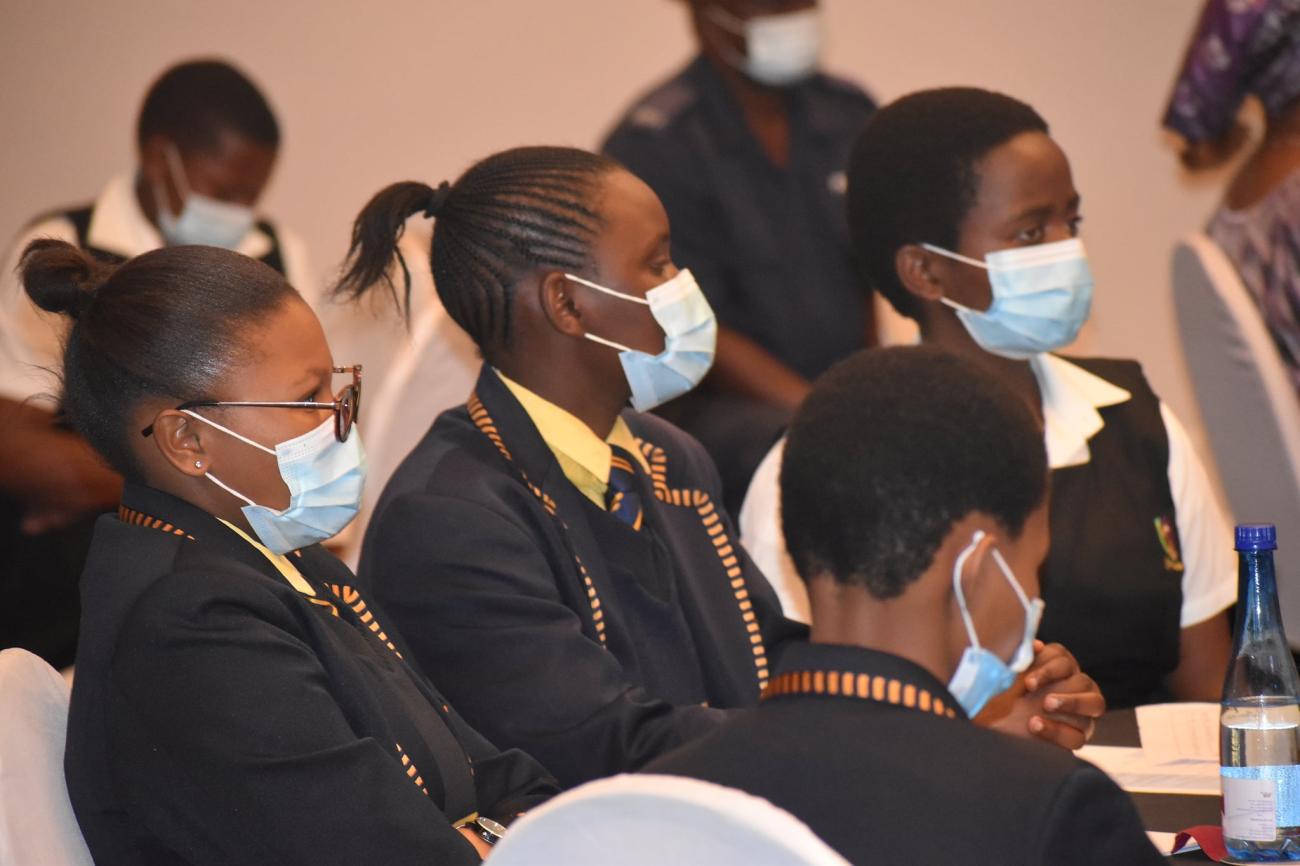On the 13th of October 2021, the UN in Eswatini in partnership with the Deputy Prime Minister’s Office celebrated the International Day of the Girl Child in Royal Villas, Ezulwini.
The International Day of the Girl Child, observed on October 11th, draws attention to the importance of addressing the challenges that girls face, as well as promoting girls' empowerment and the realization of their human rights. This year's theme is "Digital generation, Our generation," with the goal of increasing the diversity of tech leaders while also broadening the pathways so that every girl, this generation of girls, can realize her full potential regardless of race, gender, language, ability, economic status, or geographic origin.
As part of the International Day of the Girl Child celebrations, a documentary about affluent women from Eswatini Mobile, Standard Bank, ESCCOM, and Royal Science Technology Park in the Eswatini digital space spending the day with the girl child and showing them their day-to-day routine was screened. The documentary was shown with the goal of empowering girls on how they can contribute to the country's digital progress and development.
The UN Resident Coordinator, Ms. Nathalie Ndongo-Seh, mentioned that girls face battles in trying to break barriers, tackling injustice and inequalities, fighting for gender equality. She noted that girls are less likely than boys to own and use digital technologies, as well as gain access to technology-related skills and jobs. "As our younger generations become more reliant on digital technologies, we cannot afford to leave our young women behind,” she said. “It is our responsibility to ensure that the obstacles that girls face in the digital space, as well as their solutions, are addressed."
Ndongo-Seh emphasized the importance of empowering girls and ensuring equal access to all opportunities for them. "As a result, it is critical that we make every effort to protect, empower, and ensure that our girls and young women have access to all social and economic opportunities to enable their prosperity, and indeed, our collective prosperity," she said.
The Resident Coordinator reiterated the UN’s commitment to enabling girls to reach their full potential. She said girls will be given the opportunities they deserve through a sustained focus on SDG 5, "Gender Equality," and SDG 8, "Decent Work and Economic Growth for All."
“It is only in solidarity that we will ensure that our girls reach their full potential and play an equal part in our digital revolution. Let’s not we leave a single girl behind,” she said.
Deputy Prime Minister, Mr. Themba Masuku mentioned the establishment of the Royal Science and Technology Park, which includes two science parks, the Innovation Park and the Biotechnology Park, as among the country’s efforts to promote science, technology, and innovation. He also stated that the Ministry of Education and Training is constantly integrating digital literacy into schools, while plans to strengthen ICT education, including teacher capacity building, remain a priority. Government also recognizes the role played by the private sector in promoting and maximizing the inclusion of the girl child in digital empowerment as a means to reduce the digital gender divide.
The Deputy Prime Minister expressed appreciation to the Office of the United Nations Resident Coordinator (UNRC), United Nations Population Fund (UNFPA), and private sector for their contribution towards the commemoration.
Furthermore, as the digital agenda becomes the new norm, the Deputy Prime Minister encouraged girls and women to take advantage of opportunities such as digital studies, trainings, and scholarships aimed at equipping them with digital skills.
He also encouraged the audience to continue to support women and girls in the digital age, noting that girls are leaders and change-makers. They are a critical source of transformational change for gender equality, and technology is an important tool to support their work, activism, and leadership.








